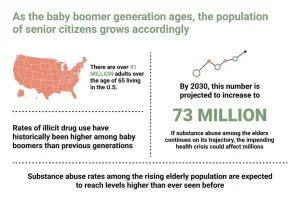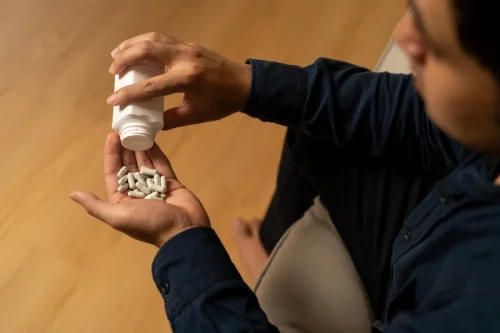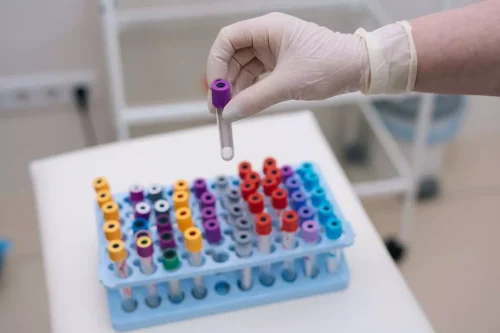
Understanding the potential health consequences can be a motivating factor in seeking treatment and maintaining recovery. Chronic substance use can reroute the brain’s reward pathway, making it difficult to find motivation for recovery. It can also lead to cognitive factors such as decreased impulse control and difficulty managing emotions, further impacting motivation. Addressing these neurological and cognitive changes is crucial in maintaining motivation during addiction recovery. Online resources provide convenient access to info and tools for personalized addiction recovery.
Refocusing mindset and remembering the purpose of recovery

It’s important to find the right supporters for your recovery, just like finding the right treatment. Every day we encounter factors that motivate us from the outside (extrinsically). These extrinsic motivators coincide with external https://ecosoberhouse.com/ motivators because they are outside of ourselves. Trauma and addiction often go hand in hand, as illustrated by the story of Sophia, a survivor of domestic violence who turned to alcohol and prescription pills to cope with her PTSD.

Exercise in Addiction Recovery: A Powerful Tool for Healing and Growth
The wake-up call came when her youngest daughter found her unconscious after an accidental overdose. Maybe they hold a mirror to your existence, are particularly effective at dismantling your denial, or allow you to think of yourself and your addiction in a new way. As you move toward recovery, or just renew your grasp on it, remind yourself of those words.

Tips for Staying Motivated
After physical and mental health, basic needs and finances will likely be the next highest priorities. Additional goals, while still important, may need to be worked on a little later after the primary goals are being managed well. Now that you’ve generated your list of possible personal recovery goals, you may find you have identified several different areas you could choose to work on. It’s not unusual to have a handful or even a dozen or more possible goals to consider.
As internal motivation has proven more effective in sustaining sobriety than external motivation like, financial incentives, according to a study conducted at University of Rochester, New York. Benefits of motivational interviewing during rehab are significant in helping individuals overcome addiction. By employing this client-centered counseling approach, therapists can elicit intrinsic motivation in patients, fostering a deeper commitment to change. During sessions, therapists benefit from motivational interviewing during rehab by encouraging open dialogue and exploring patients’ ambivalence towards recovery. This technique empowers individuals to discover their own reasons for change, enhancing their self-efficacy and confidence in the recovery process.
- Overcoming these challenges can be particularly tough since they may spark a sense of hopelessness or a belief that change is out of reach.
- Attitude affects how you treat other people, how you look at life, how you respond to challenges, and often whether you succeed or fail in any endeavor.
- One of the best TED Talks for addiction, this 10-minute video clip from former Miss USA, Tara Conner, is all about her personal experience with substance use.
- Keep an eye out for the signs that you might be vulnerable to a relapse.
- With strong motivation, they can resist these temptations and stay focused on their sobriety goals.
When individuals find reasons why they want to change, such as improving their health or relationships, they can stay motivated. It shows that when goals and aspirations are internalized, individuals can better handle the ups and downs of sobriety. The long-term recovery motivation health effects of addiction are vital to consider when going for recovery. Addiction can take a toll on physical and mental health, harming organs such as the brain, liver and lungs. It also increases the risk of chronic conditions like cancer and heart disease.
Addressing Emotional Triggers
These stories illustrate that recovery is not just about abstaining from substances – it’s about transformation. It’s about rebuilding relationships, rediscovering passions, and finding purpose. It’s about learning to navigate life’s challenges without the crutch of addiction and finding joy in sobriety.

thoughts on “18 Best TED Talks for Addiction & Recovery”
Additionally, social factors, such as peer pressure or environmental cues, can influence and reinforce addictive behaviors. The cons of recovery may seem like a lot at first but with every con, there is a pro and in harder times it is important to remember why you are choosing to make this change for yourself. Some of these pros could include an increased awareness of life, a healthier body, greater ambition, and a new social circle full of loving individuals who accept who you are. Maintaining motivation throughout the process is crucial to achieving long-term sobriety and leading a healthy, fulfilling life.
How to Stay Motivated to Change in Addiction Recovery
If addiction has been an issue, the goal to “maintain sobriety” is a must to include. Next would likely be a goal related to mental health (manage mental illness) and one or more related to physical health (rest, physical activity, medications, healthy diet, etc.). Staying motivated in addiction recovery is a continuous and vital journey. Discover how motivation contributes to long-term sobriety, explore personalized resources and treatment options, and find the resolve to keep going, even when the path gets tough.
- If you are worried that you may have a substance, alcohol, or behavioral addiction then help is available.
- Identifying and acknowledging potential challenges and triggers is a must to overcome them.
- Feeling connected to something bigger than yourself can help keep you motivated and accountable to continue your recovery journey.
- When practicing self-care, you will improve the way your body and mind feel, which can help you feel better about yourself overall.
If we feel uninspired for too long, feelings of self-doubt, isolation, and frustration can undermine your recovery process. Beliefs provide us with a built-in mechanism for quickly making decisions because they offer a sense of certainty, but sometimes these “truths” are not as accurate as we imagine. Now that you have prioritized your goals and have selected your top areas to work on, spend some time considering why each of these main goals is important to you. If the answer is they will bring you better health, increased happiness, improved relationships or overall peace of mind, then they are good goals to pursue.